KASPER’S LIVERY SERVICE
Since 1987. Gay & Veteran Owner/Operator.
Enjoy Lincoln’s “Sanctuary of the Senses” in my new Nautilus!
Proper DC License & Livery Insured.
http://www.KasperLivery.com.
202-554-2471

U.S. Military/Pentagon
4th Circuit rules against discharged service members with HIV
Judges overturned lower court ruling

A federal appeals court on Wednesday reversed a lower court ruling that struck down the Pentagon’s ban on people with HIV enlisting in the military.
The conservative three-judge panel on the 4th U.S. Circuit Court of Appeals overturned a 2024 ruling that had declared the Defense Department and Army policies barring all people living with HIV from military service unconstitutional.
The 4th Circuit, which covers Maryland, North Carolina, South Carolina, Virginia, and West Virginia, held that the military has a “rational basis” for maintaining medical standards that categorically exclude people living with HIV from enlisting, even those with undetectable viral loads — meaning their viral levels are so low that they cannot transmit the virus and can perform all duties without health limitations.
This decision could have implications for other federal circuits dealing with HIV discrimination cases, as well as for nationwide military policy.
The case, Wilkins v. Hegseth, was filed in November 2022 by Lambda Legal and other HIV advocacy groups on behalf of three individual plaintiffs who could not enlist or re-enlist based on their HIV status, as well as the organizational plaintiff Minority Veterans of America.
The plaintiffs include a transgender woman who was honorably discharged from the Army for being HIV-positive, a gay man who was in the Georgia National Guard but cannot join the Army, and a cisgender woman who cannot enlist in the Army because she has HIV, along with the advocacy organization Minority Veterans of America.
Isaiah Wilkins, the gay man, was separated from the Army Reserves and disenrolled from the U.S. Military Academy Preparatory School after testing positive for HIV. His legal counsel argued that the military’s policy violates his equal protection rights under the Fifth Amendment’s Due Process Clause.
In August 2024, a U.S. District Court sided with Wilkins, forcing the military to remove the policy barring all people living with HIV from joining the U.S. Armed Services. The court cited that this policy — and ones like it that discriminate based on HIV status — are “irrational, arbitrary, and capricious” and “contribute to the ongoing stigma surrounding HIV-positive individuals while actively hampering the military’s own recruitment goals.”
The Pentagon appealed the decision, seeking to reinstate the ban, and succeeded with Wednesday’s court ruling.
Judge Paul V. Niemeyer, one of the three-judge panel nominated to the 4th Circuit by President George H. W. Bush, wrote in his judicial opinion that the military is “a specialized society separate from civilian society,” and that the military’s “professional judgments in this case [are] reasonably related to its military mission,” and thus “we conclude that the plaintiffs’ claims fail as a matter of law.”
“We are deeply disappointed that the 4th Circuit has chosen to uphold discrimination over medical reality,” said Gregory Nevins, senior counsel and employment fairness project director for Lambda Legal. “Modern science has unequivocally shown that HIV is a chronic, treatable condition. People with undetectable viral loads can deploy anywhere, perform all duties without limitation, and pose no transmission risk to others. This ruling ignores decades of medical advancement and the proven ability of people living with HIV to serve with distinction.”
“As both the 4th Circuit and the district court previously held, deference to the military does not extend to irrational decision-making,” said Scott Schoettes, who argued the case on appeal. “Today, servicemembers living with HIV are performing all kinds of roles in the military and are fully deployable into combat. Denying others the opportunity to join their ranks is just as irrational as the military’s former policy.”
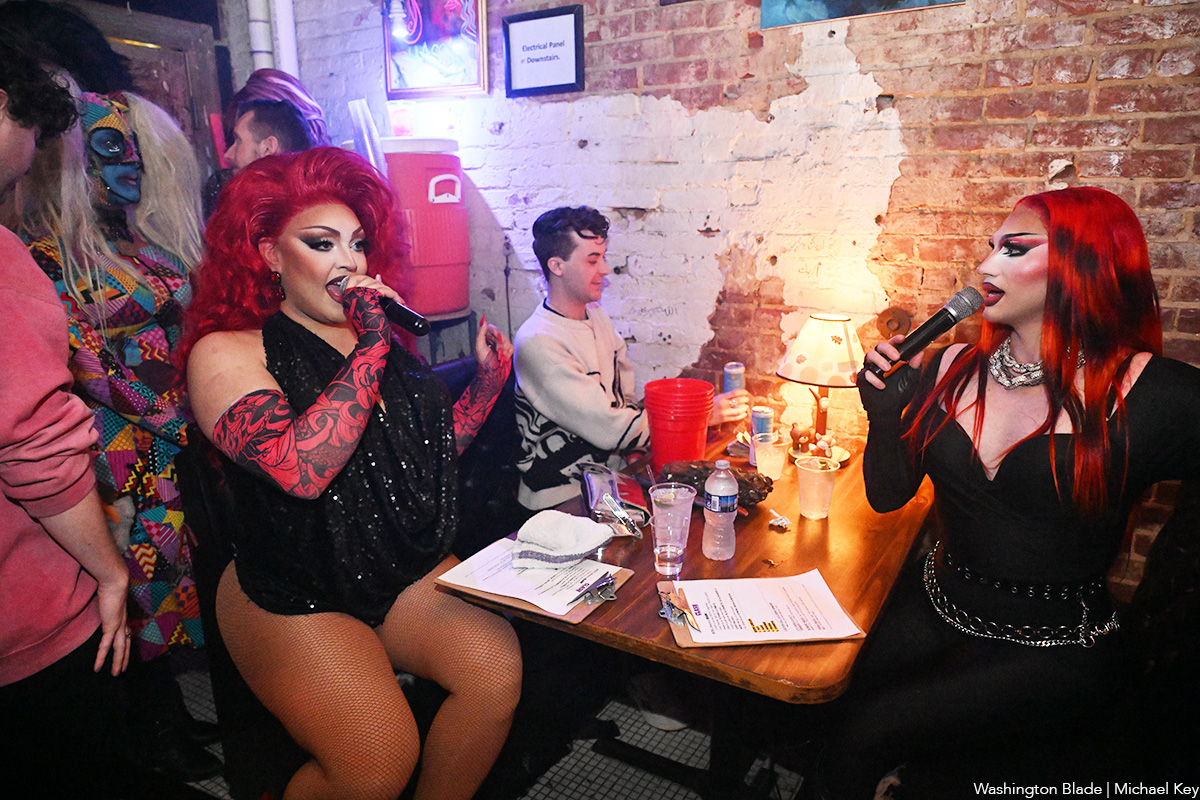
Crimsyn and Tatianna hosted the new weekly drag show Clash at Trade (1410 14th Street, N.W.) on Feb. 14, 2026. Performers included Aave, Crimsyn, Desiree Dik, and Tatianna.
(Washington Blade photos by Michael Key)
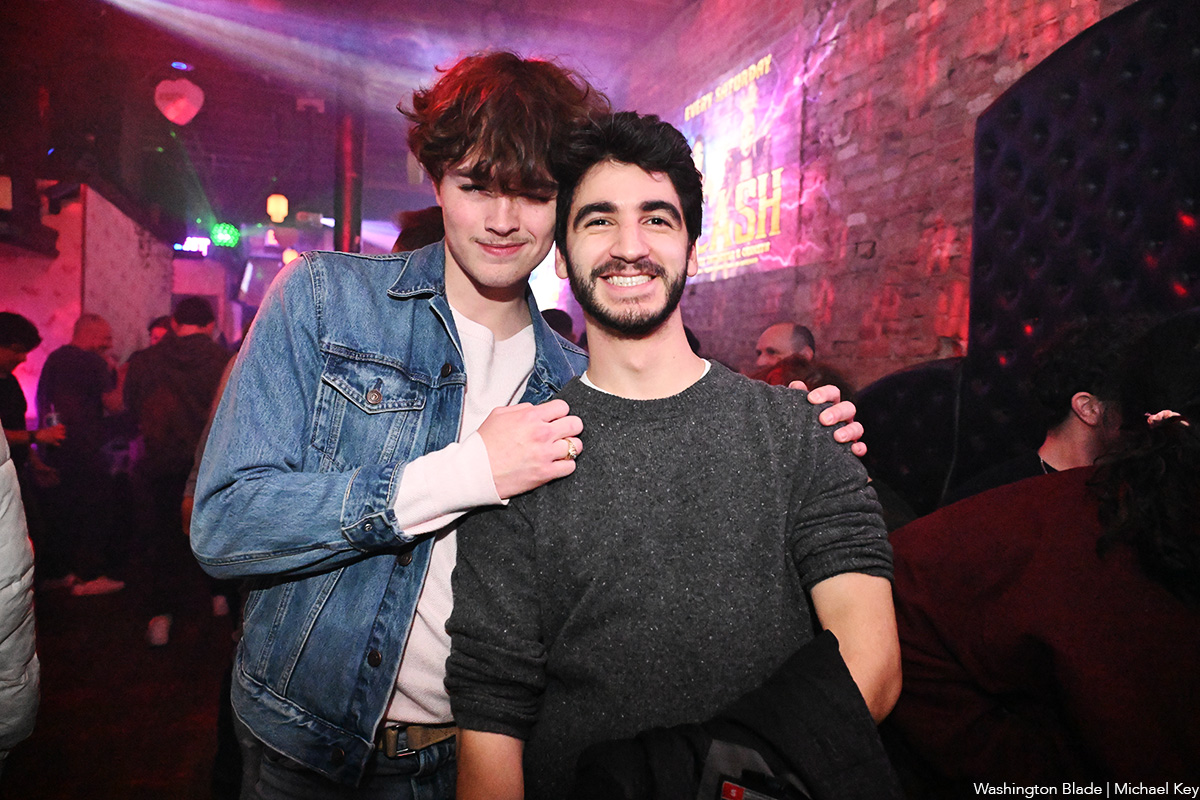
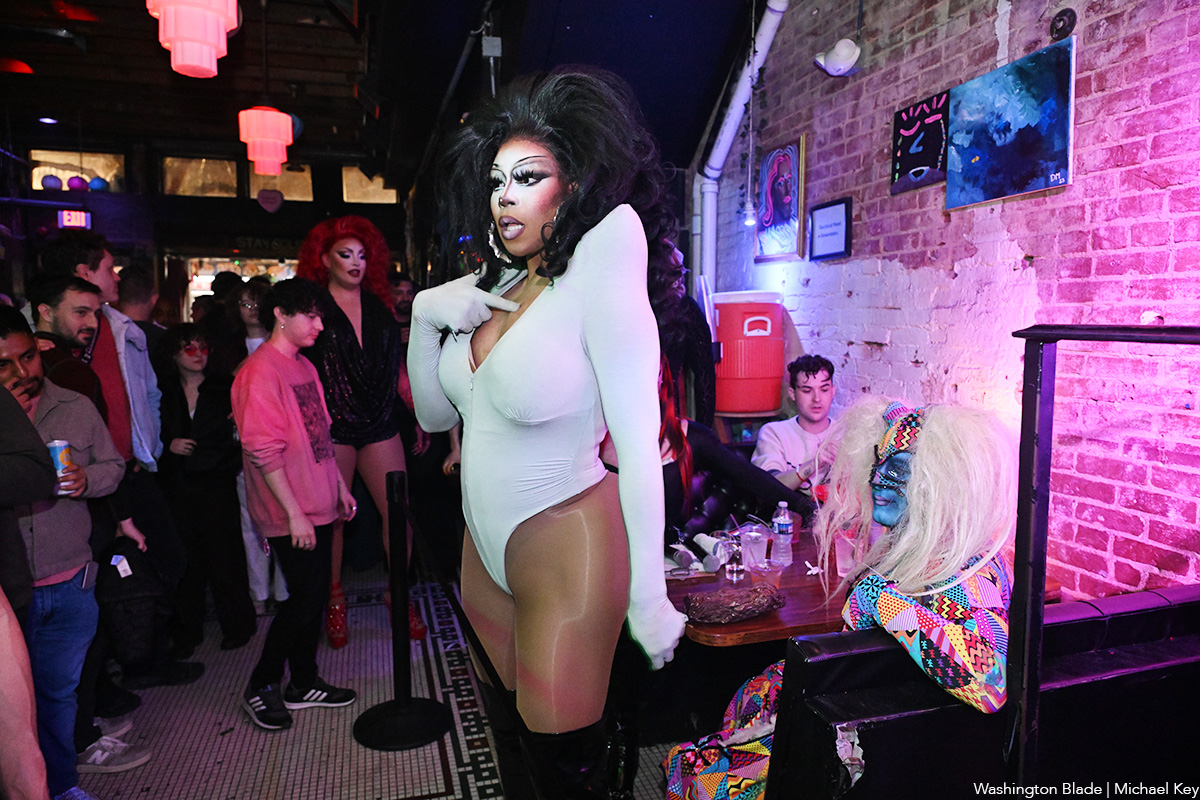
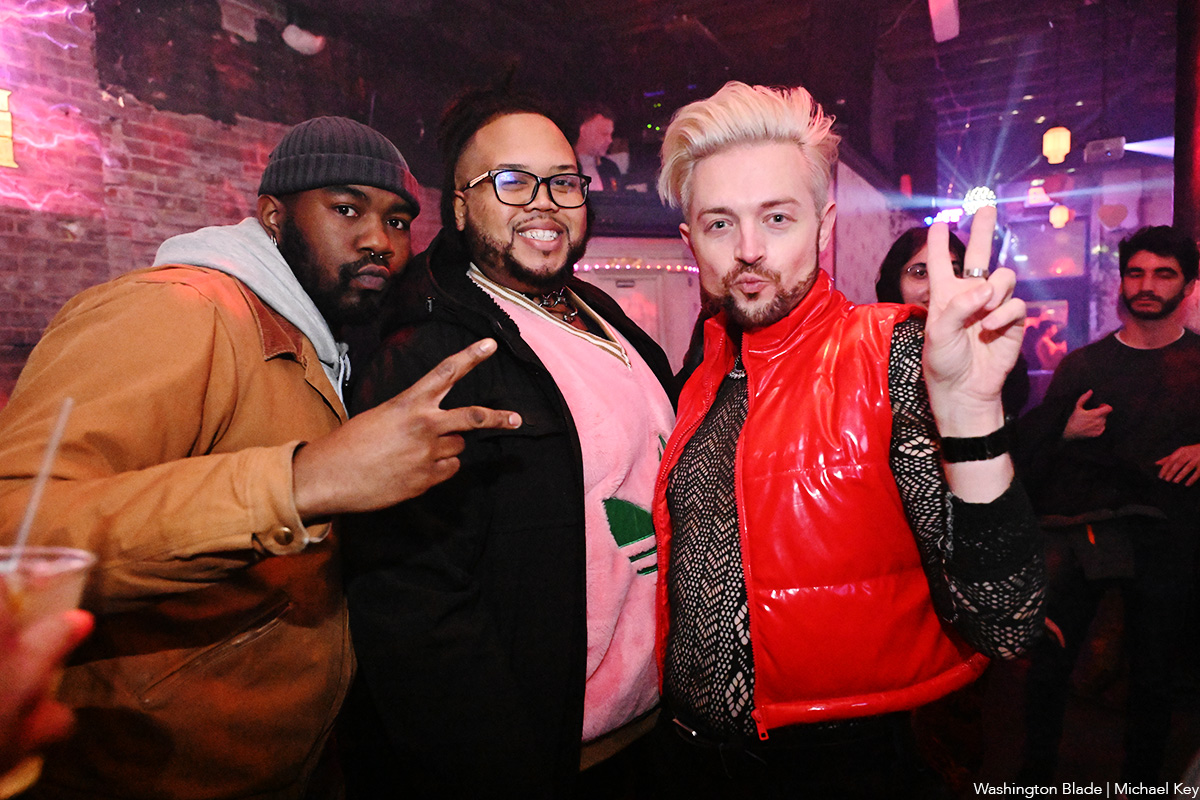
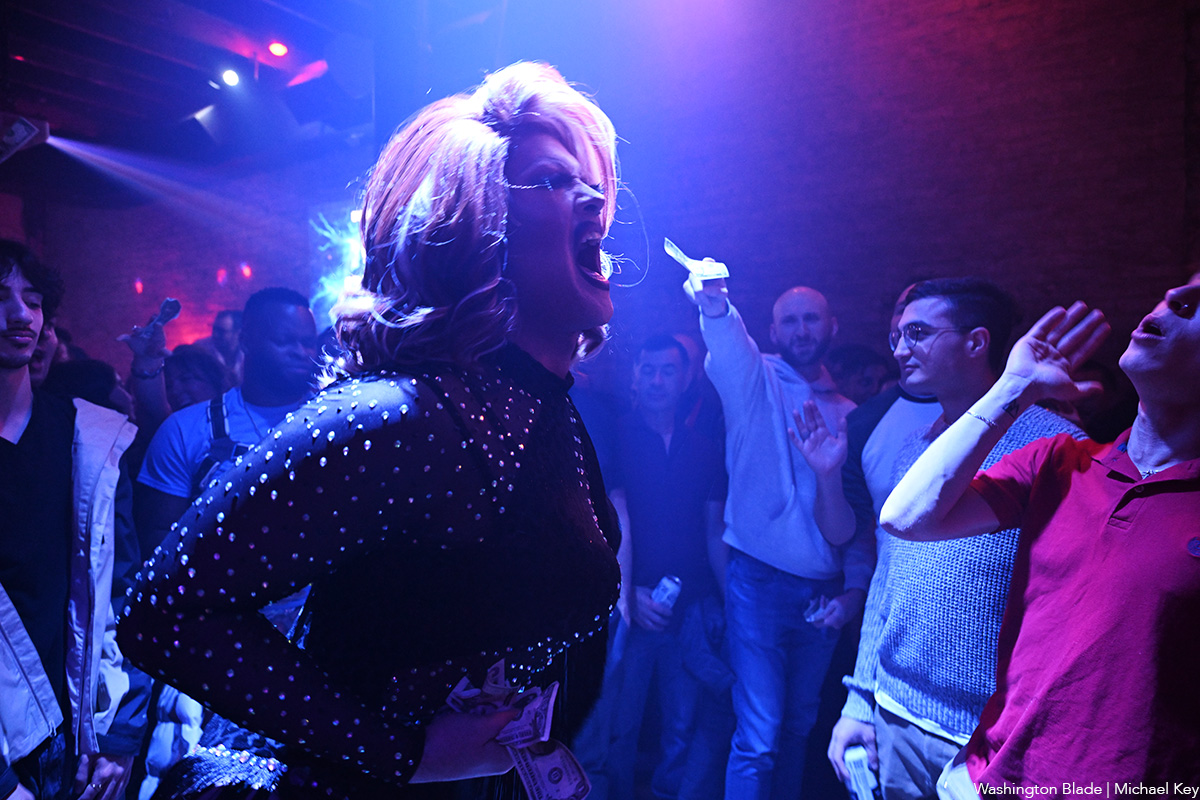
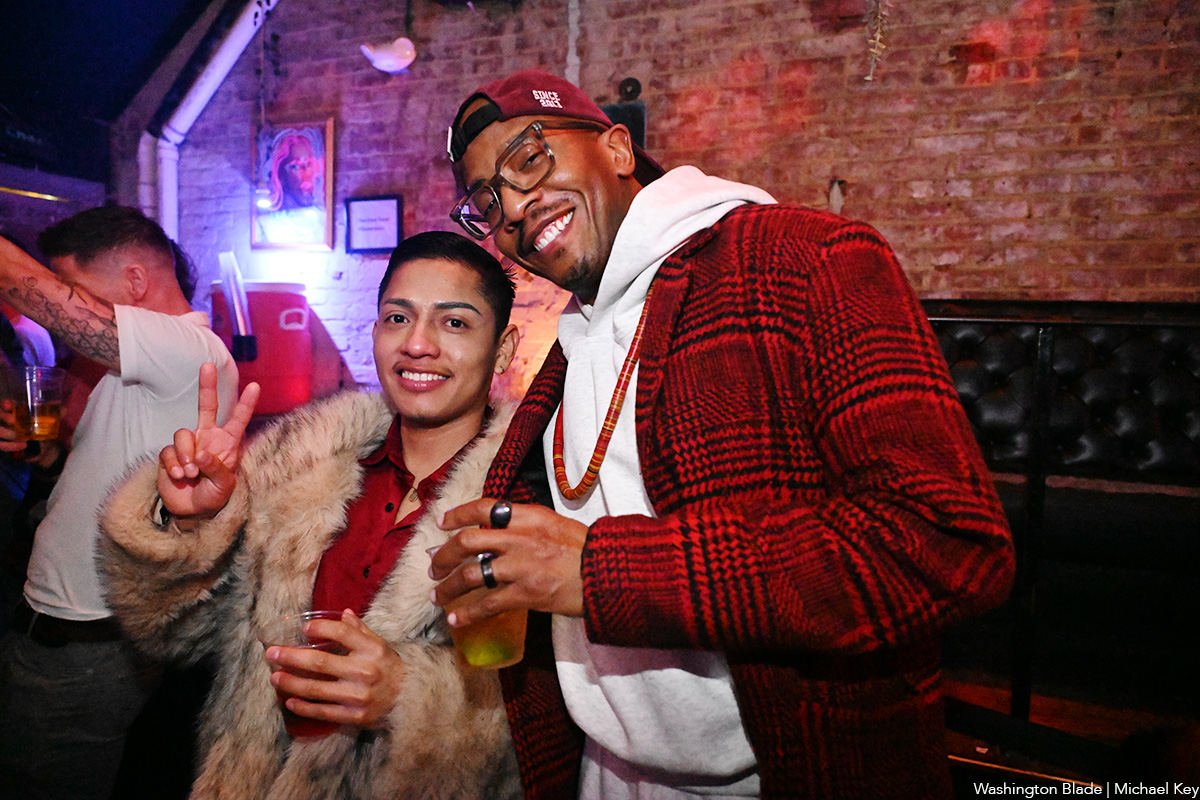
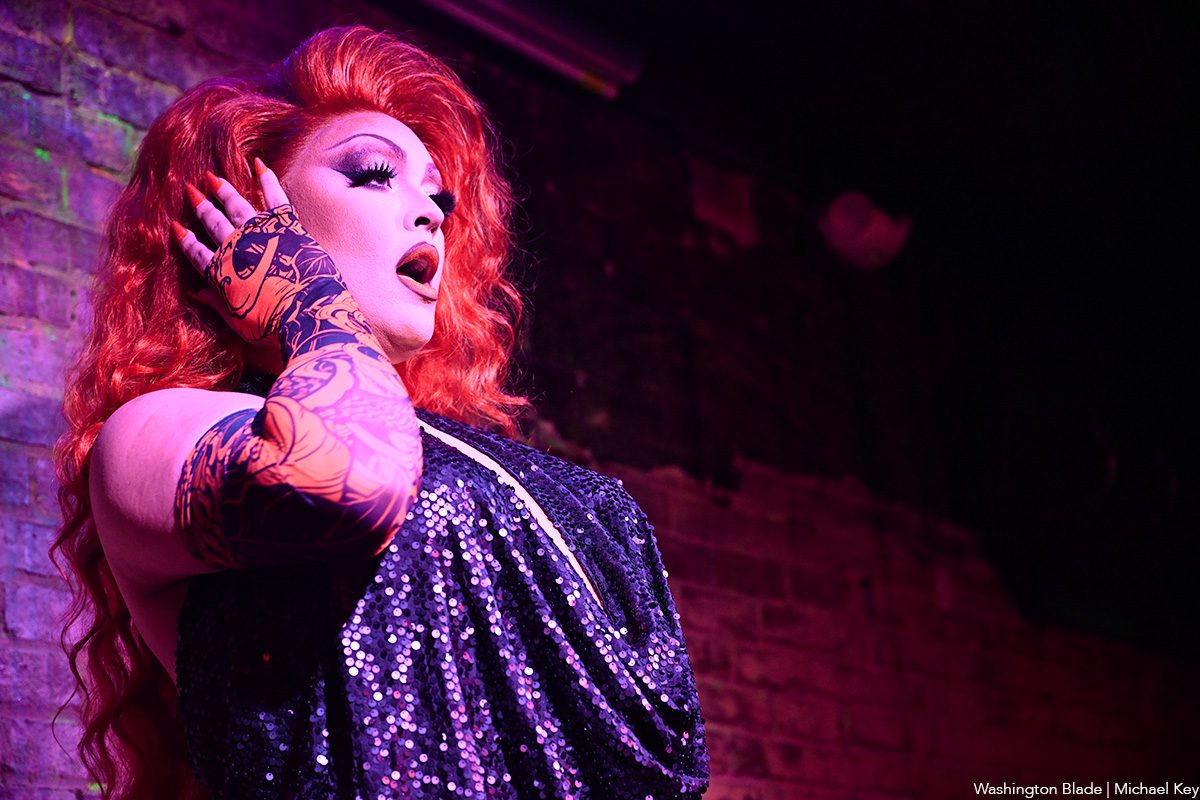
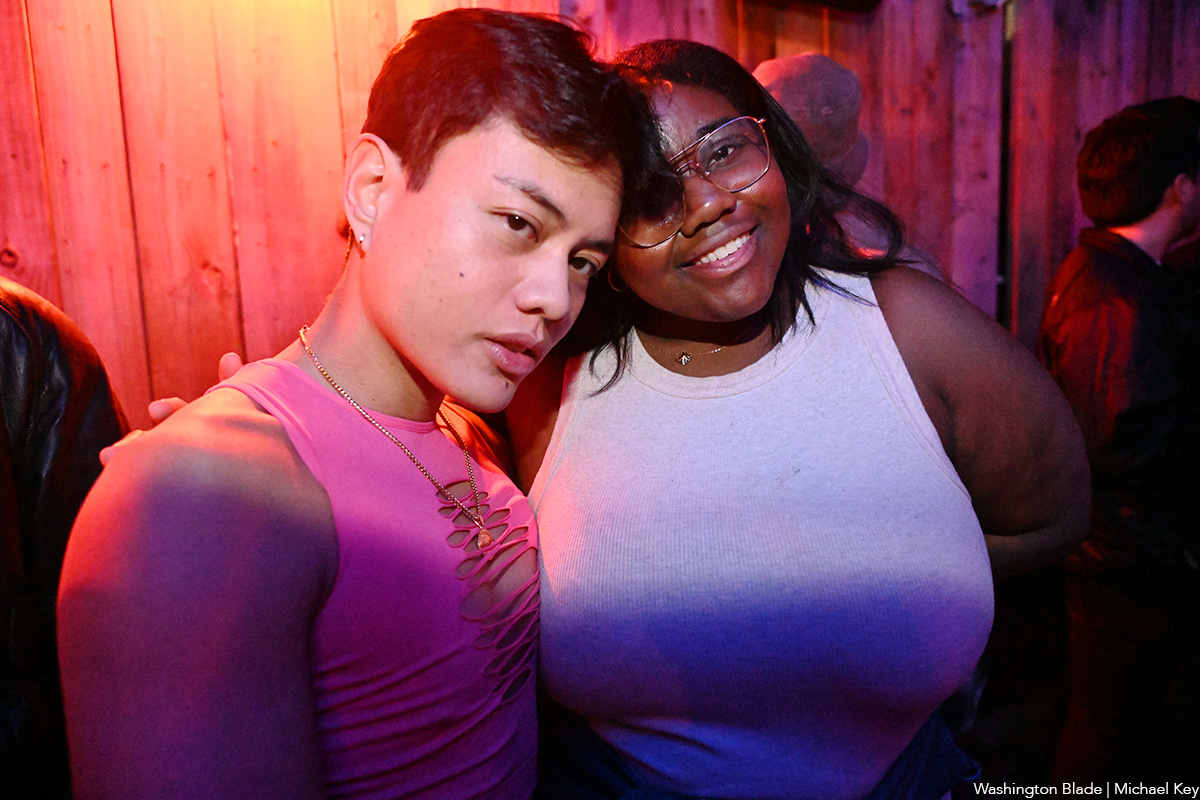
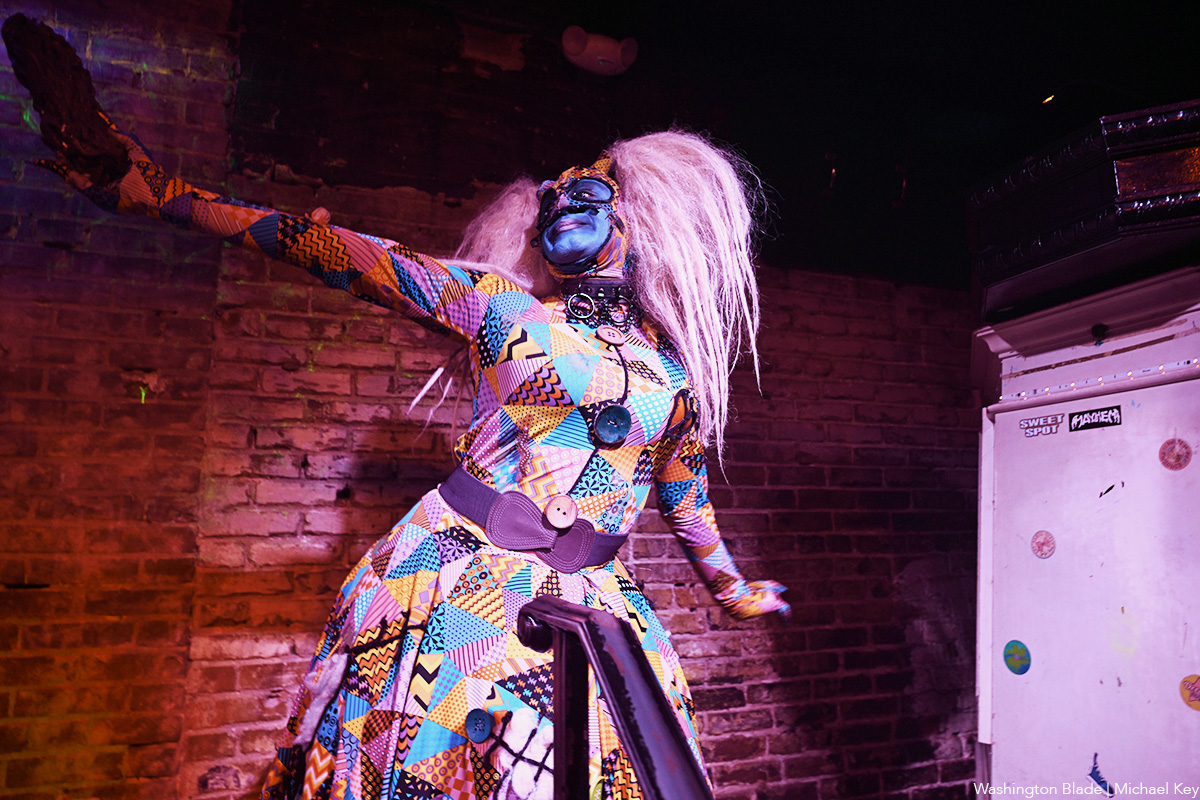
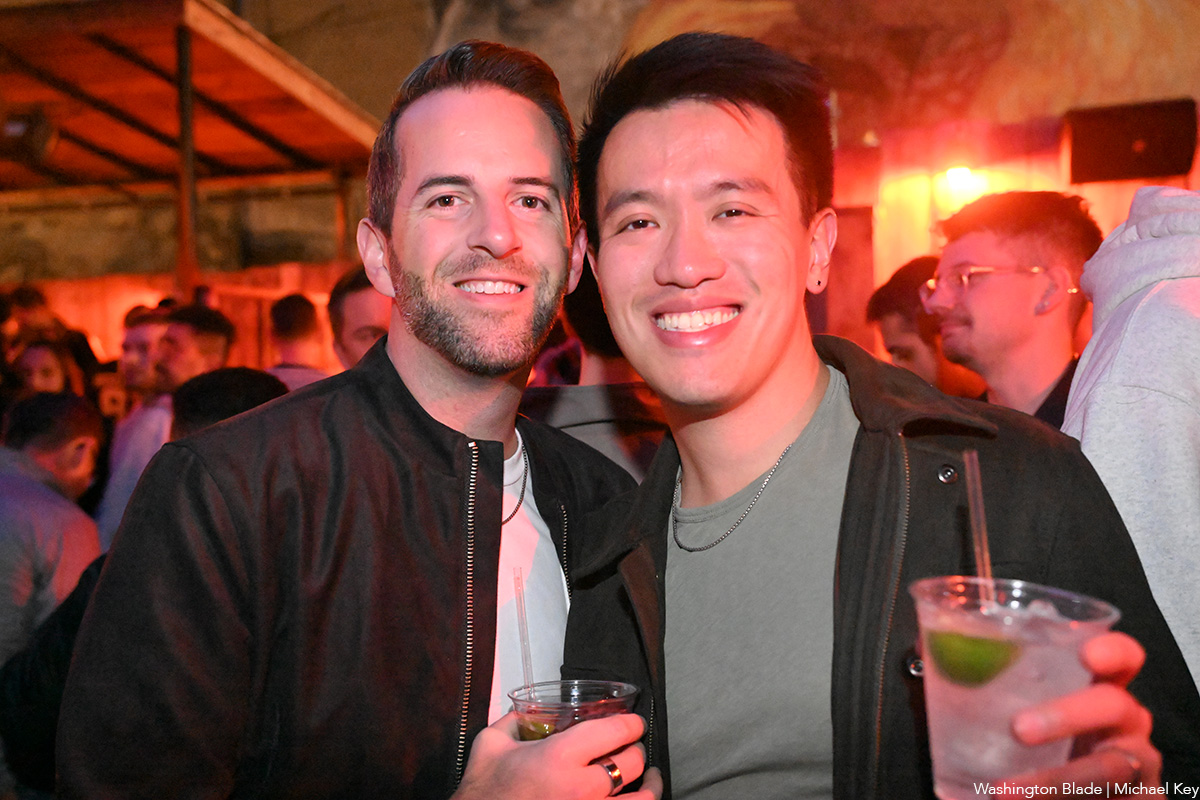
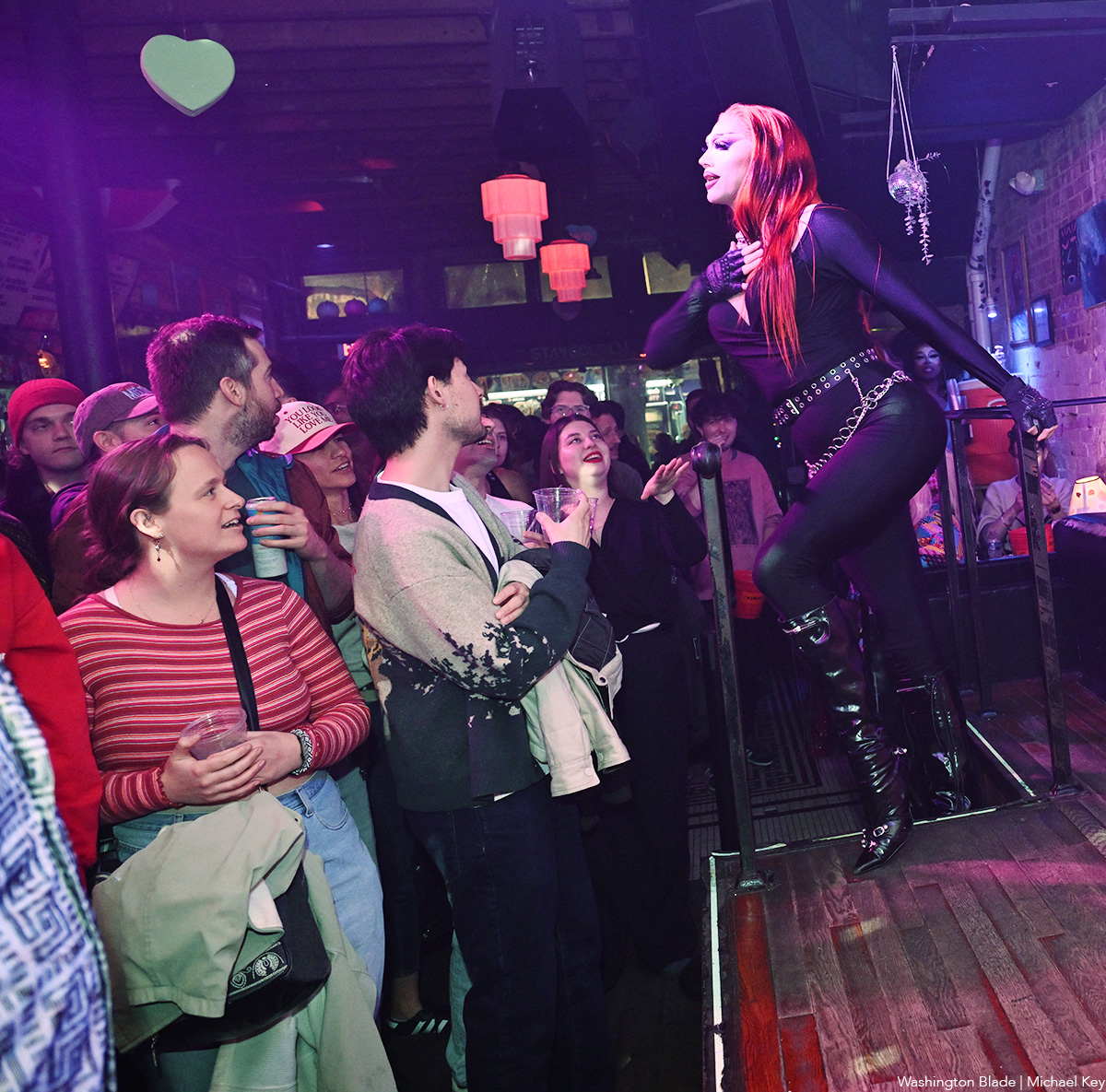
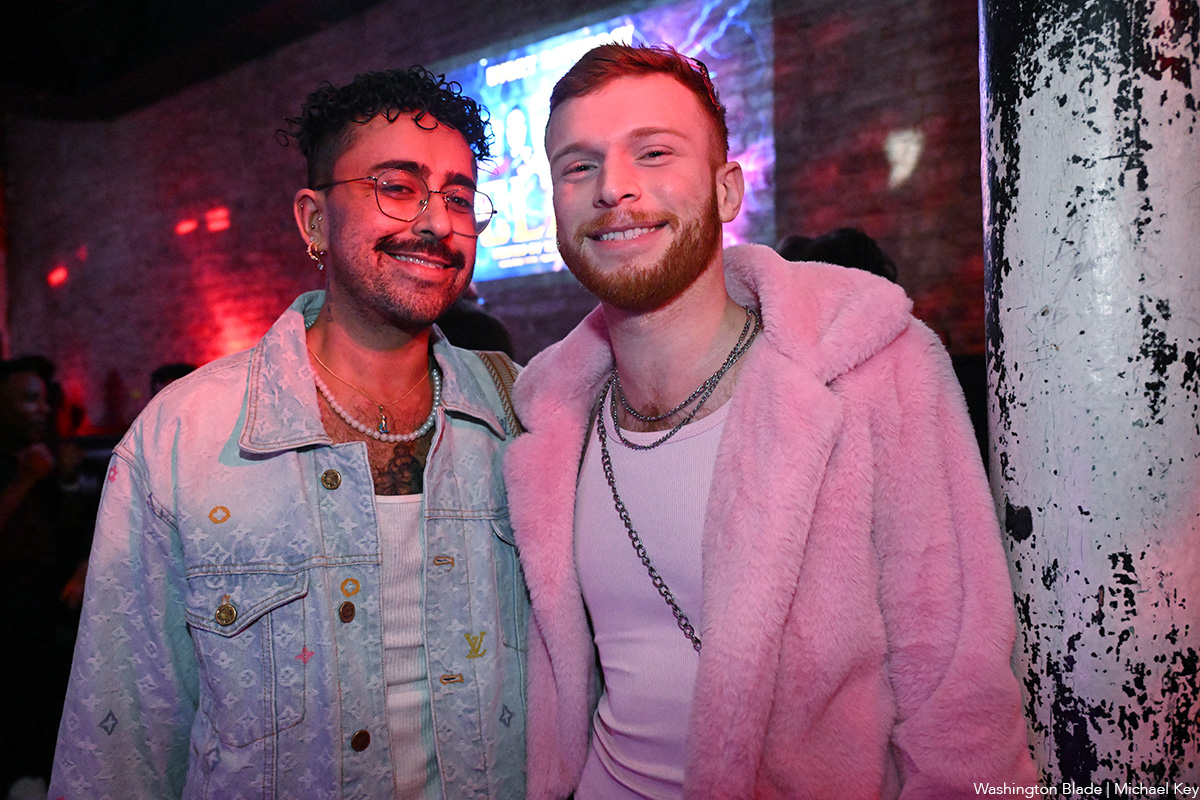
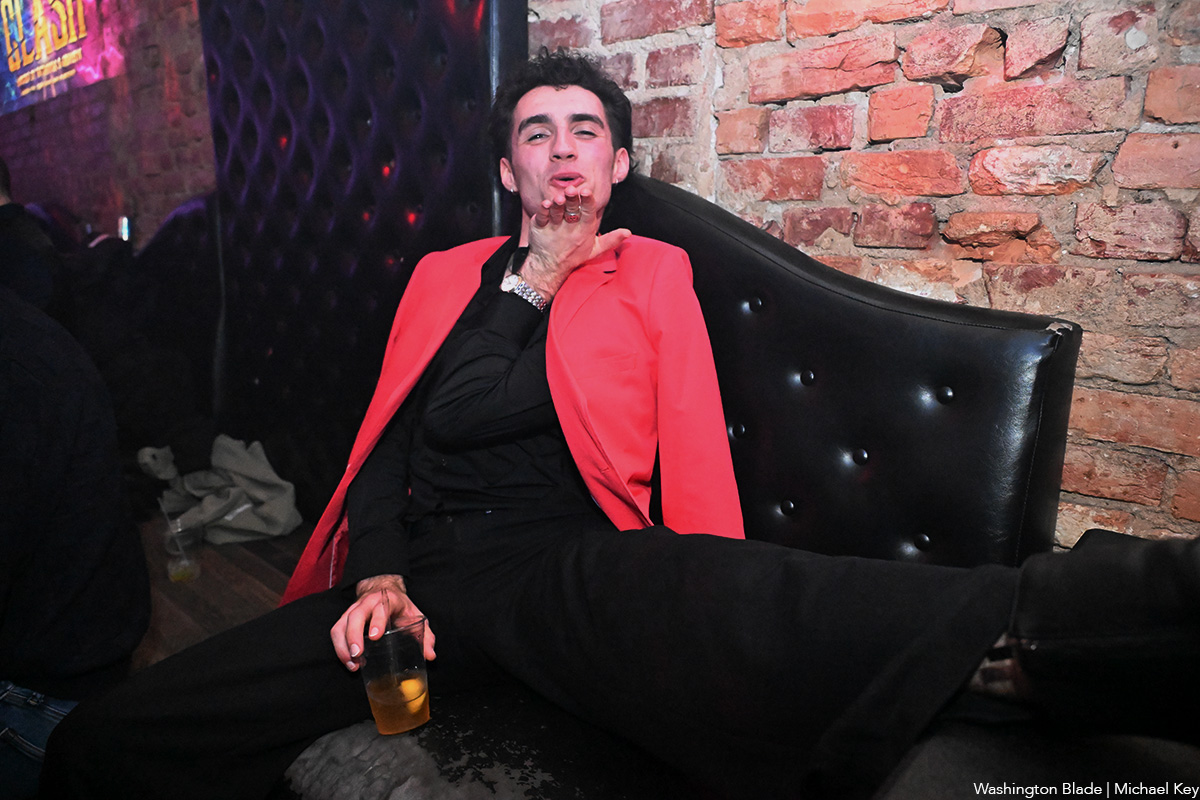
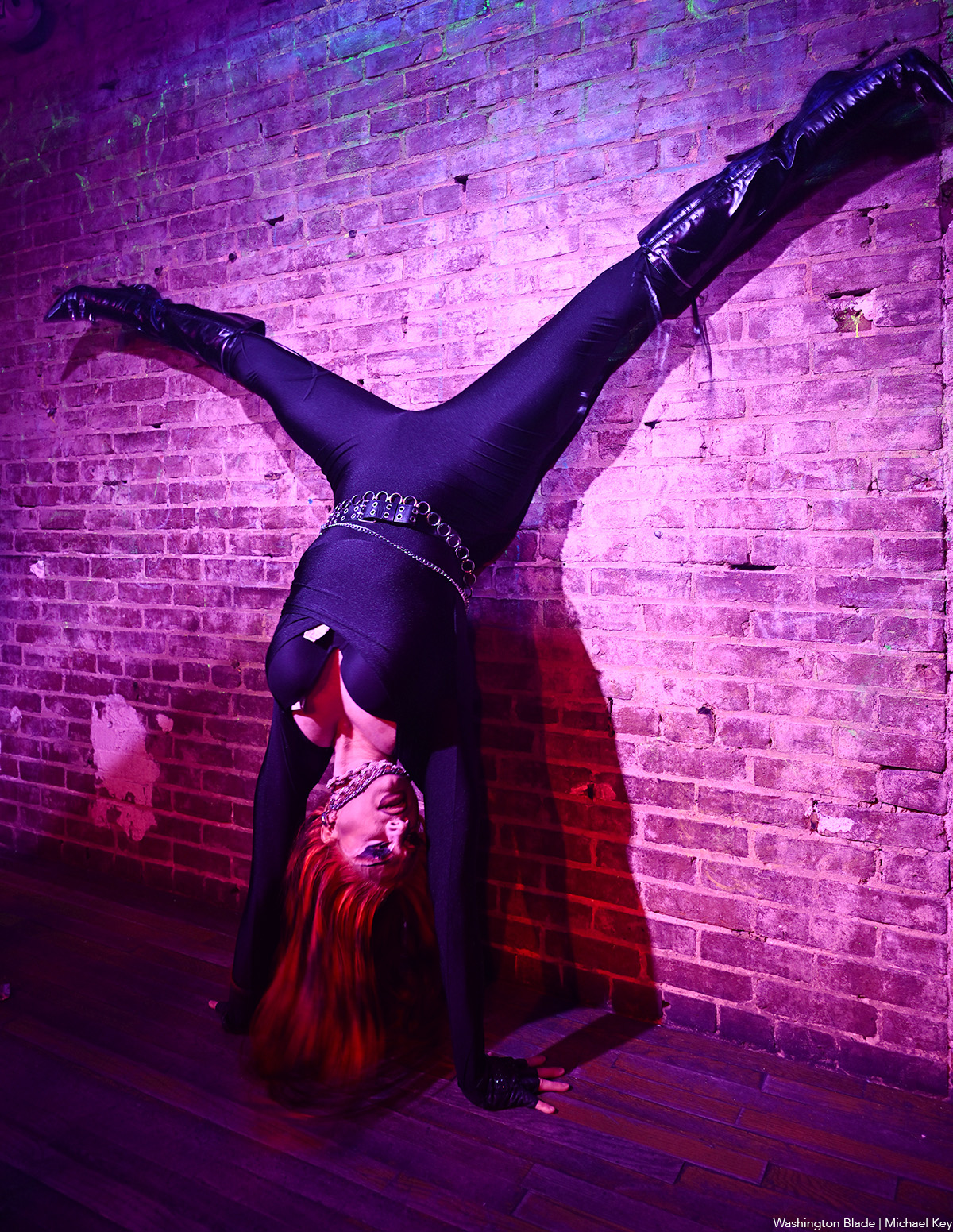
Opinions
Gay Treasury Secretary’s silence on LGBTQ issues shows he is scum
Scott Bessent is a betrayal to the community

We all know the felon in the White House is basically a POS. He is an evil, deranged, excuse for a man, out only for himself. But what is just as sad for me is the members of the LGBTQ community serving in his administration who are willing to stand by silently, while he screws the community in so many ways. The leader, with his silence on these issues, is the highest ranking “out” gay ever appointed to the Cabinet; the current secretary of the treasury, the scum who goes by the name, Scott Bessent.
Bessent has an interesting background based on his Wikipedia page. He is from South Carolina and is what I would call obscenely wealthy. According to his financial assets disclosure to the U.S. Office of Government Ethics, Bessent’s net worth was at least $521 million as of Dec. 28, 2024; his actual net worth is speculated to be around $600 million. He married John Freeman, a former New York City prosecutor, in 2011. They have two children, born through surrogacy. I often wonder why guys like Bessent conveniently forget how much they owe to the activists in the LGBTQ community who fought for the right for them to marry and have those children. Two additional interesting points in the Wikipedia post are Bessent reportedly has a close friendship with Donald Trump’s brother Robert, whose ex-wife, Blaine Trump, is the godmother of his daughter. The other is disgraced member of the U.S. House of Representatives, John Jenrette, is his uncle.
Bessent has stood silent during all the administrations attacks on the LGBTQ community. What does he fear? This administration has kicked members of the trans community out of the military. Those who bravely risked their lives for our country. The administration’s policies attacking them has literally put their lives in danger. This administration supports removing books about the LGBTQ community from libraries, and at one point even removed information from the Pentagon website on the Enola Gay, the plane that dropped the first atomic bomb, thinking it might refer to a gay person. It was actually named after Enola Gay Tibbets, the mother of the pilot, Col. Paul Tibbets. That is how dumb they are. Bessent stood silent during WorldPride while countries around the world told their LGBTQ citizens to avoid coming to the United States, as it wouldn’t be safe for them, because of the felon’s policies.
Now the administration has desecrated the one national monument saluting the LGBTQ community, Stonewall, in New York City, by ordering the removal of the rainbow flag. The monument honors the people who get credit for beginning the fight for equality that now allows Bessent, and his husband and children, to live their lives to the fullest. That was before this administration he serves came into office. I hope his children will grow up understanding how disgusting their father’s lack of action was. That they learn the history of the LGBTQ community and understand the guts it took for a college student Zach Wahls, now running for the U.S. Senate from Iowa, to speak out for his “two moms” in the Iowa State Legislature in 2011, defending their right to marry.
Bessent is sadly representative of the slew of gays in the administration, all remaining silent on the attacks on the community. They are mostly members of the Log Cabin Republicans who have given up on their principles, if they ever had any, to be subservient to the felon, and the fascists around him, all for a job.
There are so many like them who supported the felon in the last election. Some who believed in Project 2025, others who didn’t bother to read it. Many continue to stand with him, with the sycophants in the Congress, and the incompetents and fascists in the administration, as they work to destroy our country and end the democracy that has served us so well for 250 years. To keep out all immigrants from a nation of immigrants. They all seem to forget it was immigrants who built our country, who fought against a king, and won. These sycophants now support the man who wants to be king. Who openly says, “I am president I can do anything only based on my own morality,” which history clearly shows us he has none.
I believe we will survive these horrendous times in American history. We have fought a king before and won. We have kept our country alive and thriving through a civil war. We the people will defeat the felon and his minions, along with the likes of those who stood by silently like Scott Bessent. They seem to forget “Silence = Death.”
Peter Rosenstein is a longtime LGBTQ rights and Democratic Party activist.














